- Home
- slideshows
- miscellaneous
- The Bill and Melinda Gates Foundation says there's opportunity in these 13 areas to make the world better
The Bill and Melinda Gates Foundation says there's opportunity in these 13 areas to make the world better
Though the number of people living in extreme poverty is decreasing, the Gates Foundation emphasizes that regional variation needs to be look at too.

Unpaid care work around the world is still disproportionately done by women and girls.
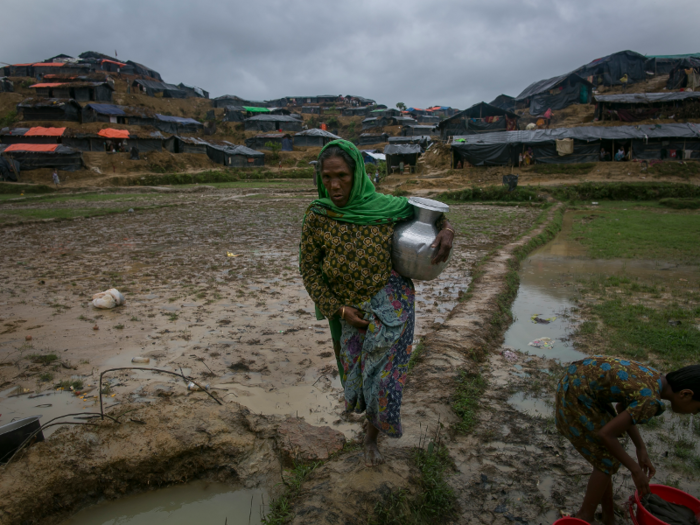
Unpaid care work — which includes gathering water, cooking, and taking care of children — shows the consequences of gender inequality, according to the report.
"This work, some of which is drudgery and some of which is deeply rewarding, is disproportionately shouldered by women and girls," the report said. "The burden of unpaid care work is one reason why women are poorer than men, especially during the years when they devote the most time to child rearing."
More girls and women would be able to attend school and launch businesses if unpaid care work was split equally between men and women.
Currently, women between the ages of 25 and 34 are 22% more likely to be extremely poor when compared to men of the same age. And 88% of women earn less as a result of having children, the report said.
While global coverage of vaccines is high, many countries fall significantly below the average.

The percentage of people worldwide who can access vaccines for diseases like pneumonia and measles is rising, but these data points fail to tell the whole story.
The diphtheria, tetanus, and pertussis (DTP3) vaccine, for example, has global coverage of nearly 90%, but the number is below 50% in some countries. The coverage in five countries — Central Africa Republic, Angola, Somalia, Nigeria, and Equatorial Guinea — is expected to remain below 60% in 2030.
Even if a country has a high overall vaccine coverage, some parts of the country may be neglected. In one quarter of sub-Saharan Africa districts, for example, over half of children have not received the required three doses of DTP3. The diseases covered by DTP3 can all be fatal, the report said, and the vaccine is considered the "gold standard" for measuring people's access to immunizations in a given area.
"The priority now is replicating successful strategies in the most challenging places so that all people everywhere receive lifesaving vaccines," the report said.
The Gates Foundation is calling for a greater focus on preventing maternal deaths in low-income countries.
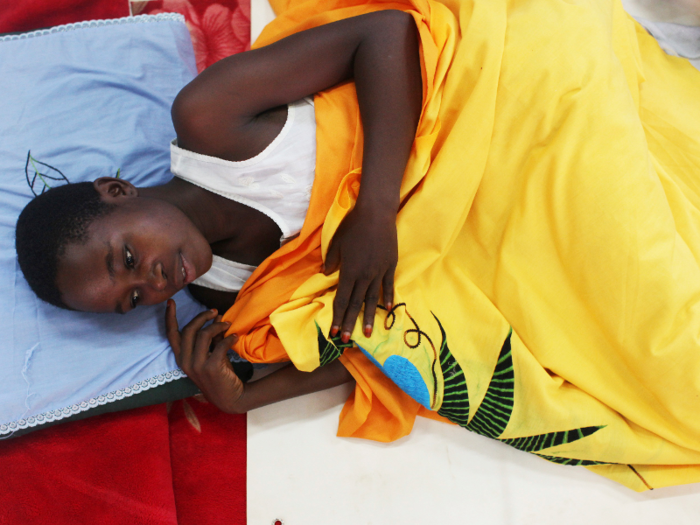
The number of maternal deaths continues to decrease — from 257 per 100,000 live births in 1990 to a rate of 134 last year — but mothers in low-income countries are not receiving adequate treatments.
Postpartum hemorrhage is the number one cause of maternal death, and it can be treated in nearly every case, the report said. Current guidelines, however, list more than a dozen interventions — too many for health workers to go through in an emergency.
Health systems should simplify interventions and create standardized packages to make sure that workers have the skills and equipment needed to deliver treatments, the report said.
The number of HIV cases per 1,000 people is projected to rise by 2030, but new policies could change that.
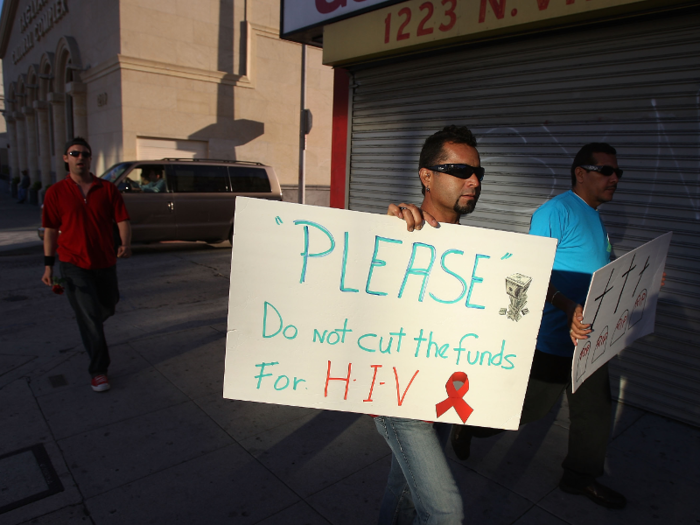
In 2017, there were 0.26 new cases of HIV per 1,000 people. While this was lower than the rate in 1990, researches project there will be 0.29 new cases per 1,000 people in 2030.
Only 70% of people with HIV know their status, the report said, and the percentage needs to rise before universal treatment is possible.
Some people who are at risk and are hard to reach may prefer self-testing to testing in a clinic, but only about 40 countries have self-testing policies. The report said the number of new HIV infections would go down if more countries had a self-testing policy.
The poorest countries have fewer women whose family planning needs are met with modern contraception.
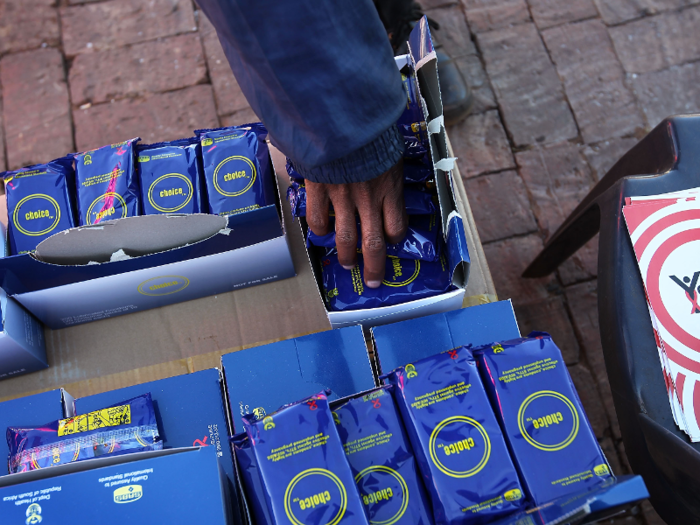
The percentage of women of reproductive age who have their family planning needs met with modern contraception has increased from 68% to 76% since 1990. In the 69 poorest countries, however, the number lags a notable amount, with an improvement from 51% to 64% in the same time period.
According to the report, long-acting contraception implants are more accessible now, helping increase contraceptive use in sub-Saharan Africa.
Efforts to eliminate malaria face an uncertain future, and the Gates Foundation said additional funding is needed.
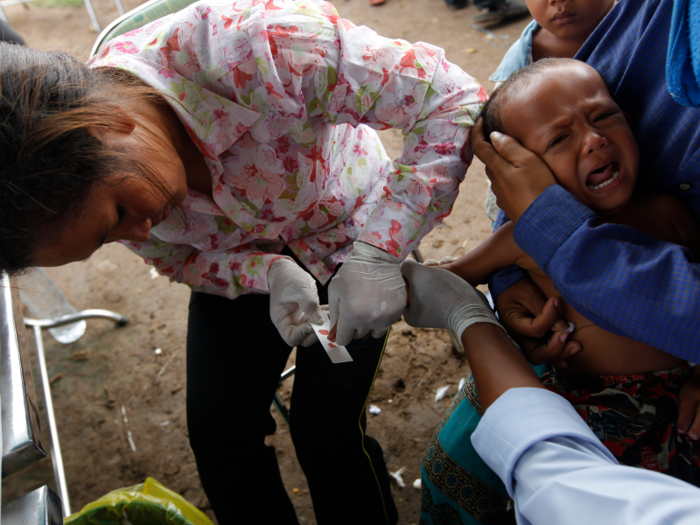
There were 29 new cases of malaria per 1,000 people last year, down from 37 cases per 1,000 in 1990.
But according to the report, the effort to eliminate malaria faces an uncertain future.
"As we work toward reducing the number of cases and eventually toward elimination, we need to increase funding, optimize the use of current tools, and take advantage of emerging surveillance, modeling, and next-generation bed nets," the report said.
The foundation expects new treatments for neglected tropical diseases to become available this year.
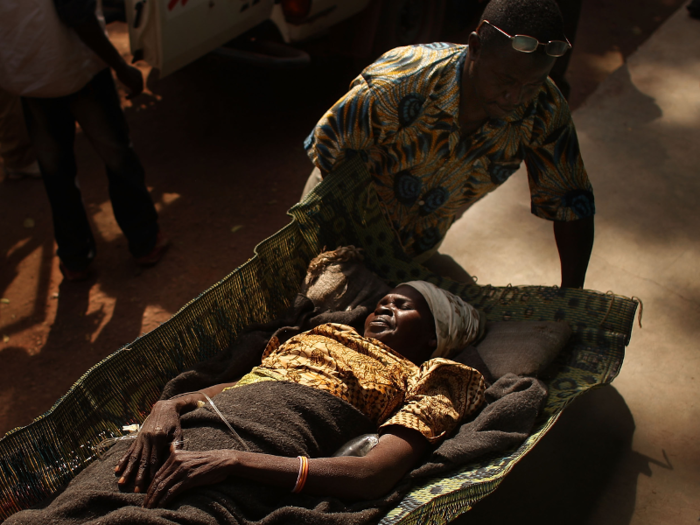
A wide variety of conditions are labeled as neglected tropical diseases, including rabies, dengue, and leprosy. Since 1990, the rate of infection has fallen from 34,000 cases per 100,000 people to 17,000 cases last year.
Much of this progress is due to improvement in delivering existing drugs to patients, the report said. But to eliminate neglected tropical diseases altogether, both new solutions and improvements to existing ones are needed.
The report said two innovations will soon be accessible. A simplified treatment for African sleeping sickness — a potentially fatal infection that disturbs sleep cycles, among other neurological symptoms — uses pills instead of a lumbar puncture and inpatient treatment. And a new mix of drugs for lymphatic filariasis — a parasitic infection that targets lymph nodes — drastically lowers how long it takes to remove the parasite.
Fewer people are engaging in open defecation, but improvements are necessary to bring the percentage down more.

The percentage of people using unsafe sanitation has fallen from 58% to 30% since 1990, but the Gates Foundation estimates the number could rise without continued progress.
More sewer connections and wastewater treatment plants can help improve sanitation, the report said, but these methods are expensive and not practical in many areas.
"We believe we’ll see even greater progress by safely collecting and treating more of the human waste currently gathering in pit latrines and septic tanks, and by introducing innovative toilets that kill pathogens but don’t rely on sewers," the report said.
Current projections, which take into account sewer connections and treatment plants, would bring the percentage of people using unsafe sanitation down to 22% by 2030, and the report said additional improvements would lower that to 19%.
Access to banking and financial services has expanded globally, but women are still not included equally.

The percentage of adults with a bank or mobile account has risen from 62% to 69% since 2014, but there is still a 7% gap between men and women. In Bangladesh, only 36% of women have an account compared to 65% of men.
Inequality will grow rather than shrink, the report said, if men and women are not given access to financial services equally.
The Gates Foundation said researchers need to better understand the effect of e-cigarettes.

While the percentage of people age 10 or older who smoke has gone down from 25% to 18% since 1990, the number is at risk of rising if efforts regress.
Smoking bans and price increases related to tobacco taxes have helped lower smoking rates, but even if these methods are magnified, the report said millions of smokers will still die or get sick.
E-cigarettes and other alternative tobacco produces are not harmless, but they could be less devastating. Researchers need to better understand whether e-cigarettes could lower smoking rates without addicting youth.
More countries need to measure literacy and numeracy among children, the foundation said.
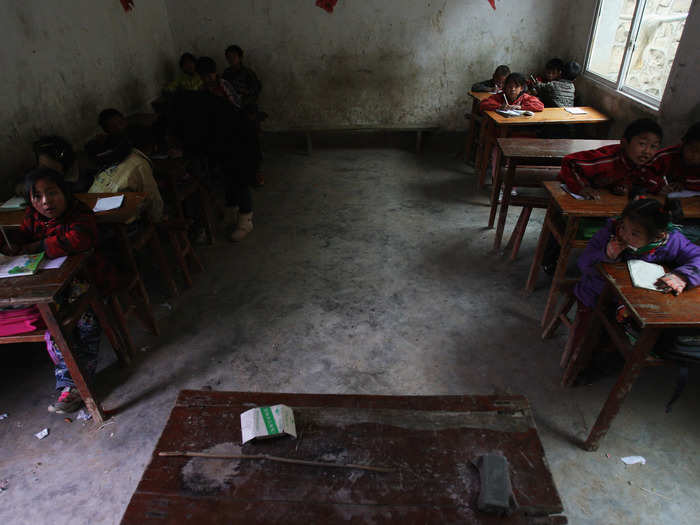
Data released by UNESCO shows that more than 600 million students around the world are not minimally proficient in reading and mathematics, the report said.
Only 28% of countries are represented in the data, and the Gates Foundation said more countries need to gather this information about their students.
The good news: at least seven multi-country programs are measuring literacy and numeracy in grades 2 and 3, including initiatives in sub-Saharan Africa and West Africa.
Further research is required to understand agriculture productivity in sub-Saharan Africa.

Collecting data on agricultural productivity and income is very costly and labor-intensive, and most low-income countries in sub-Saharan Africa do not have this data, the report said.
The Gates Foundation — in collaboration with UN agencies, donors, and individual countries — is working on completing agricultural surveys to eliminate these gaps in data.
Popular Right Now
Popular Keywords
Advertisement